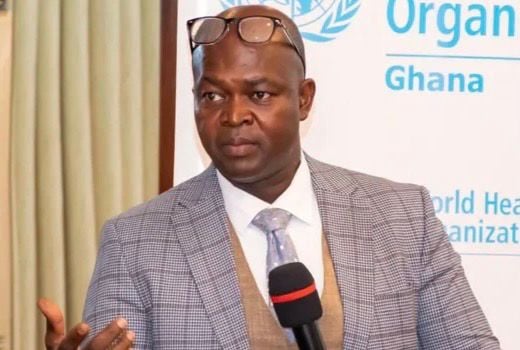The Director-General of the Ghana Health Service (GHS), Professor Samuel Kaba Akoriyea, has made a fervent appeal to the Ghana Registered Nurses and Midwives Association (GRNMA) to reconsider their ongoing strike action and return to the negotiation table. His plea underscores the critical impact the strike is having on healthcare delivery, particularly the plight of patients who are being denied essential medical services due to the unavailability of nurses and midwives. Professor Akoriyea’s appeal highlights the ethical dilemma faced by healthcare professionals who, while fighting for their rights, are also bound by a duty of care to their patients. He emphasizes the potential for tragic consequences if the strike continues, particularly for vulnerable individuals requiring urgent medical attention.
Professor Akoriyea’s appeal is rooted in a compassionate understanding of the human cost of the strike. He posed a series of poignant questions to the striking nurses and midwives, challenging them to consider the implications of their actions if they or their loved ones were in need of immediate medical care. He painted a vivid picture of a pregnant nurse in labor, unable to receive the very care she provides to others due to the strike. This hypothetical scenario underscores the irony and potential tragedy of the situation, highlighting the shared vulnerability of both healthcare providers and patients within the healthcare system.
The Director-General’s appeal resonates with the broader ethical considerations surrounding strikes in essential services. While acknowledging the legitimacy of the GRNMA’s demands, he emphasizes the need to balance the pursuit of these rights with the fundamental right to healthcare. The strike, by its very nature, disrupts this delicate balance, potentially leading to severe consequences for patients who rely on the timely and effective delivery of healthcare services. This inherent tension between the rights of workers and the needs of patients forms the crux of the Director-General’s appeal.
The GRNMA’s strike stems from unresolved issues regarding their 2024 Collective Agreement. The agreement encompasses a range of demands, including critical financial provisions like a 13th-month salary, fuel and medical allowances, rural incentive allowances, and practical necessities such as the renewal of practicing licenses and provision of uniforms. These demands reflect the GRNMA’s efforts to secure better working conditions and remuneration for its members, recognizing the crucial role they play in the healthcare system. The unresolved nature of these issues has led to the current impasse, with the GRNMA resorting to strike action as a means of pressuring the government to address their concerns.
The Director-General’s intervention comes at a critical juncture, as the strike continues to disrupt healthcare services across the country. His appeal for a return to the negotiation table signifies a desire to find a mutually acceptable solution that addresses the GRNMA’s concerns while ensuring the continued provision of essential healthcare services to the population. He acknowledges the legitimacy of the GRNMA’s grievances and implicitly recognizes the importance of fair compensation and improved working conditions for healthcare professionals. His call for dialogue aims to bridge the divide between the striking nurses and midwives and the government, paving the way for a resolution that respects both the rights of workers and the needs of patients.
Ultimately, the Director-General’s appeal underscores the shared responsibility of all stakeholders in ensuring a functional and equitable healthcare system. He calls for a collaborative approach, urging both the GRNMA and the government to engage in constructive dialogue to resolve the ongoing dispute. By highlighting the potential for tragic consequences and emphasizing the interconnectedness of healthcare providers and patients, he aims to foster a sense of urgency and shared purpose in finding a sustainable solution. The success of this appeal hinges on the willingness of both parties to prioritize the well-being of the Ghanaian population and work together to ensure a healthcare system that is both effective and equitable.














